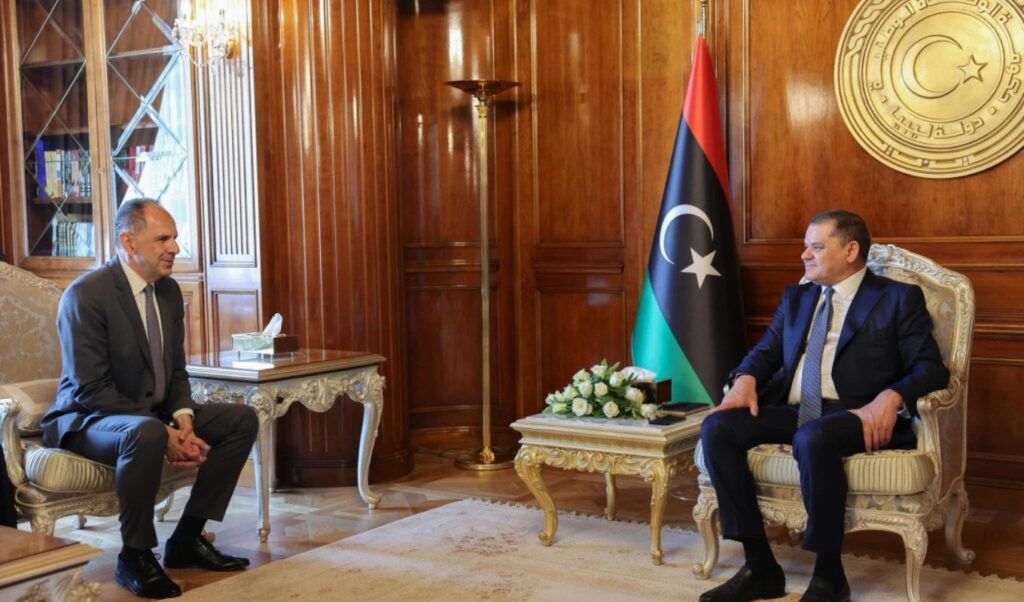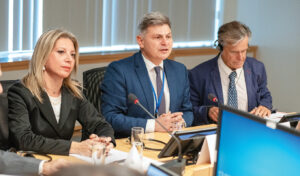The Greek diplomatic mission expresses satisfaction with the atmosphere that prevailed during yesterday’s talks in Tripoli, Libya. The Prime Minister of the Government of National Unity, Abdul Hamid Dbeibah, demonstrated, according to sources, a willingness to cooperate with Greece regarding dialogue on maritime zone delimitation and bilateral issues, such as strengthening economic and commercial relations.
However, the Turkish-Libyan memorandum remains a “thorn,” as Abdul Hamid Dbeibah did not appear to back down and kept his cards close to his chest regarding his moves, postponing any discussion on this matter to the future, despite the fact that the Greek side, aligned with the international community, rejects it as invalid and illegal.
Gerapetritis: Assessment of the Foreign Minister’s visit to Libya
According to diplomatic sources, the Greek Foreign Minister, George Gerapetritis, maintained that Greece seeks to resolve every maritime zone delimitation issue with neighboring countries, always in accordance with the rules of International Maritime Law. The two delegations agreed to begin discussions on EEZ delimitation in the near future.
Regarding Libya’s verbal announcement to the UN, diplomatic sources emphasize that George Gerapetritis maintained that Greece exercises its sovereign rights based on International Law and does not act against third parties concerning the tender announcement for hydrocarbon exploration research in the two blocks south of Crete, which, it should be remembered, was the cause of Libya’s reaction.
Understanding, however, appears to have existed on the issue of illegal migration, as it was agreed to have coordination regarding land and maritime border control. Indeed, the Libyan side requested Greece’s assistance on this matter both bilaterally and within the framework of the EU and the UN Security Council.
Late yesterday afternoon, an announcement was also issued by Libya’s Foreign Ministry reflecting the positive atmosphere of the meeting. As stated: “The visit marks the beginning of renewed efforts to strengthen friendship and cooperation between the two countries. The talks are expected to focus on bilateral issues of mutual interest, including regional stability, economic cooperation, and diplomatic coordination.”
It should be noted that Mr. Gerapetritis’ visit to Tripoli was the first in three years. It took place during a particularly turbulent period due to conflicts in areas around the capital and under strong challenges to Abdul Hamid Dbeibah’s premiership, who is continuously losing his support even from Turkey. Under this prism, the government of Eastern Libya appears to have an increased role, with General Haftar not having revealed his cards regarding the ratification or not of the illegal Turkish-Libyan memorandum and keeping control of the migration valve in his hands.




